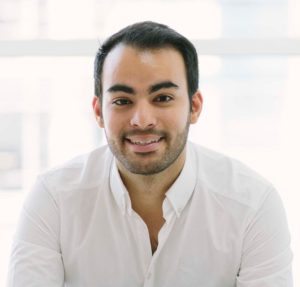Meeting With Hamza Khan
Hamza and his partner Omar Almheiri launched Letswork in 2019. They met at the e25, Emaar’s in-house innovation lab, and came up with the concept of developing a workspace marketplace.
The global market value of flexible workspaces is estimated at approximately US $26 billion. Despite the negative impact the COVID-19 pandemic has had on the coworking spaces, the industry is expected to continue growing and thriving in a post-pandemic world.
Letswork was the first digital platform in the region to activate hotels and cafes as shared workspaces. Users could sign up for a membership to gain access to and perks from a growing network of coworking spaces, hotels, and work-friendly cafes with a single pass. With its new serviced office and meeting room marketplace, Letswork is looking to capture the growing market for short-term workspace solutions.
Last week I caught up with Hamza on Zoom and Hamza discussed his business plans for the future. Letswork has already become UAE’s largest coworking platform. The duo has worked tirelessly round the clock to achieve this milestone.
Post-Covid they were forced to temporarily shut down the portal for a month, but in the last few months, they have seen a dramatic shift in business bookings rising to pre-pandemic levels.
With over 100 partner venues across the country, Letswork offers an affordable, flexible and inspiring solution to those looking to get work done outside the traditional office. The Letswork App has already got north of 32,000 downloads, 25,000 plus members, and they have booked more than 1,000 workspaces. Monthly packages start at Dhs 499 and include unlimited check-ins to any location, unlimited soft beverages, WiFi, free parking, and 20% off F&B and access to community perks and events.
Hamza is optimistic about the future. In his words, “As cities around the globe reopen, we expect people to take advantage of this new-found freedom and become digital nomads in their own right, whether for an hour to meet colleagues in person or a whole day for what we like to call, a ‘workcation’”.
What started as a movement has become a full-blown industry that has entirely disrupted the way people lease and use office space. Companies adopting hybrid work models are incorporating flexible workspace solutions into their real estate strategies to cater to the needs of remote workers across different cities and countries.
I am sure that once Hamza and Omar are successful in getting funded, they will be able to ramp up their operations and expand their offerings to the region and beyond.
I wish them every success.
Penned by Sharad Agarwal








 Email: info@cyber-gear.com
Email: info@cyber-gear.com